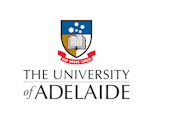I have a joint position based at The University of Adelaide and I also have a role as the Head of the State Herbarium of South Australia (AD) as Chief Botanist. The herbarium is part of the Botanic Gardens and State Herbarium in the Department of Environment, Water and Natural Resources of South Australia. Through the herbarium I have a responsability to support and enhance our understanding of the flora of South Australia with a particular emphasis on systematics and taxonomy. In my broader role I am interested in the study of plant evolution. Particularly interesting is the way plants adapt to stressful of difficult environments including marine plants, desert plants and plants with specialised adaptations such as specific pollinators.
My research is often at the interface between systematics and taxonomy, population genetics, evolutionary biology, ecology, basic biology and molecular genetics. I believe strongly that research should have useful outcomes for the future-both as applied action supporting better management of our natural resources, as well as foundational pure basic research that might lead to innovative, inspirational and sometimes even serendipitous outcomes.
My research includes a focus on the systematics of plants (especially seagrasses and related groups, monocots, sandalwood, Solanum and other arid groups). In addition, I study native plant species concepts and how to evaluate them for more effective management and the evolution of the Australian Flora. Recently, my group has progressed the ways that an application of molecular markers can be used to detect speciation or recent hybrid formation in natural populations. This is particularly important where hybrids are priming between introduced and native species leading to the loss of local distinctiveness of populations of native species.
I also lead and contribute to a diverse range of research including:
• Estuarine, marine and coastal plant communities
–Population dynamics (population genetics, reproductive biology, connectivity and spatial and temporal variability) including carbon sequestration (‘blue carbon’)
–Documenting and analysis of trends in long-term ecosystem change - in particular for coastal plant communities (e.g. seagrasses)
–Risks and threats to coastal and marine ecosystems
–Climate change and drivers of ecosystem change (e.g. water quality)
–Coastal ecosystem ecological function including threatened plant species
–Research supporting marine parks management
• Applied science for management
–Science for use in policy development and community awareness
–Biodiversity and human health
–Knowledge management for decision making
–Evidence based decision making
–Science integration and communication
• Plant systematics, taxonomy and evolutionary biology
–New species descriptions
–Evolution of the Australian flora
–Management of biological collections based institutions
–Molecular systematics
–Applications of molecular tools in foundational botanical sciences esp. taxonomy, evolutionary and ecological genetics
Experience
-
–presentProfessor Plant Systematics, The University of Adelaide
-
2003–2011Lecturer – Associate Professor and Head of Discipline Plant and Agricultural Sciences, School of Marine and Tropical Biology, James Cook University
-
1997–2003Postdoctoral fellow (JCU and ARC) part time spent at STRI 1997-1999, James Cook University
-
1997–1999Postdoctoral researcher, Smithsonian Tropical Research Institute
Education
-
1996UWA, PhD
-
1992UWA, Bachelor of Science Hons Botany, Biochemistry
Research Areas
- Plant Biology (0607)
- Evolutionary Biology (0603)
- Genetics (0604)
- Population, Ecological And Evolutionary Genetics (060411)
- Marine And Estuarine Ecology (Incl. Marine Ichthyology) (060205)
- Phycology (Incl. Marine Grasses) (060701)
- Environmental Impact Assessment (050204)
- Environmental Monitoring (050206)
- Environmental Rehabilitation (Excl. Bioremediation) (050207)
- Plant Systematics And Taxonomy (060310)
- Australia
- Website
- @ChiefBotanist
- Article Feed
-
For media enquiries,
08 8303 5414 - ORCID
- Joined


